There are two considerations which always imbitter the heart of an avaricious man–the one is a perpetual thirst after more riches, the other the prospect of leaving what he has already acquired.
HENRY FIELDINGNever trust the man who has reason to suspect that you know he hath injured you.
More Henry Fielding Quotes
-





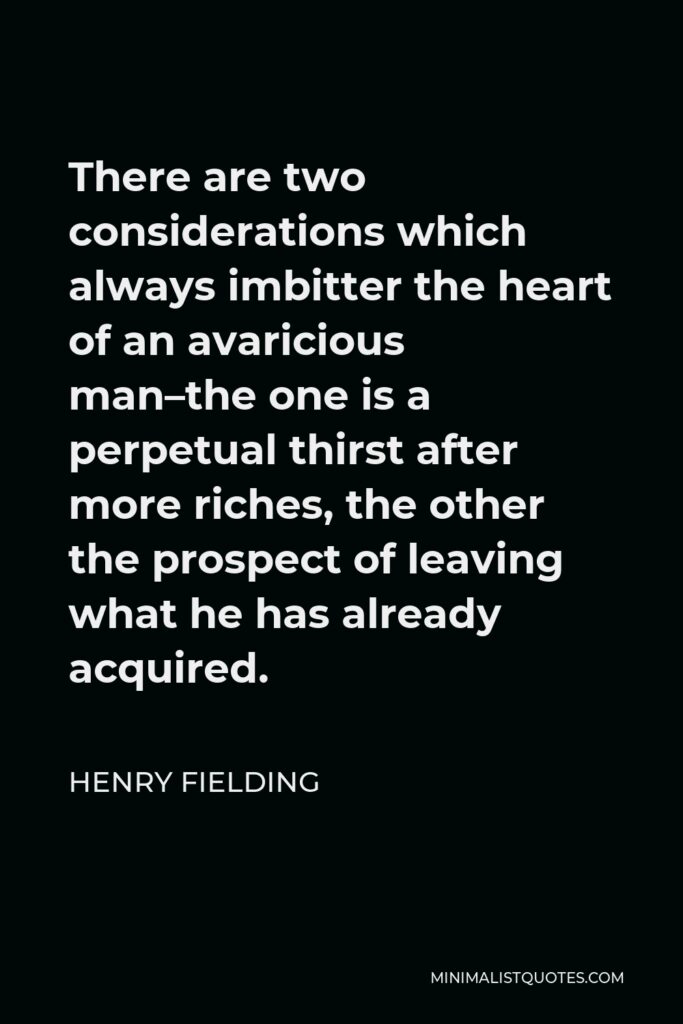

-





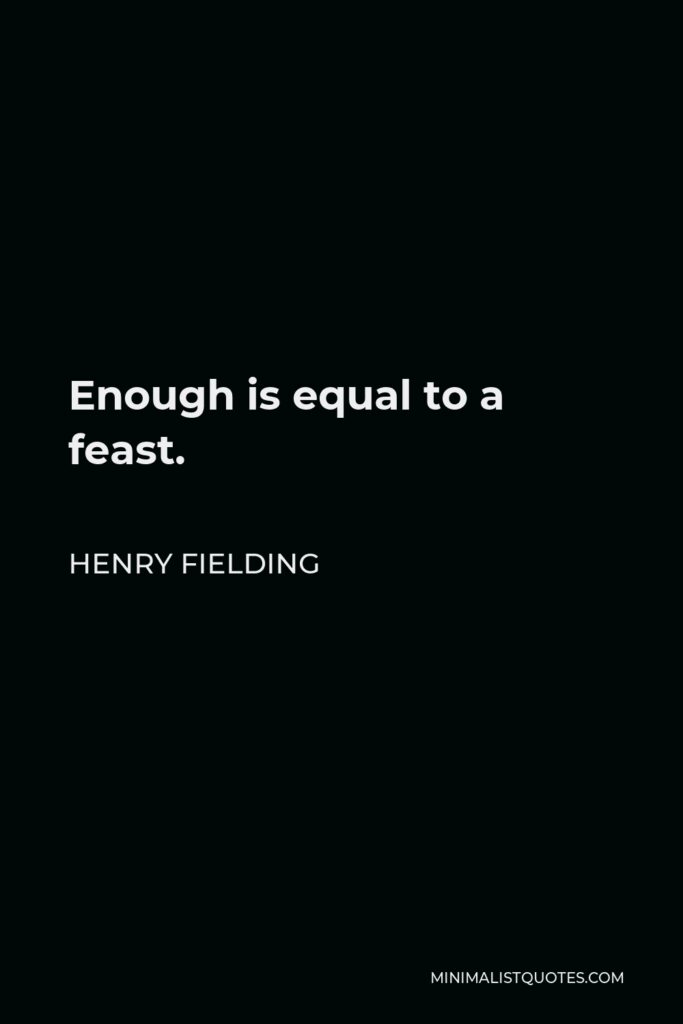

Enough is equal to a feast.
HENRY FIELDING -





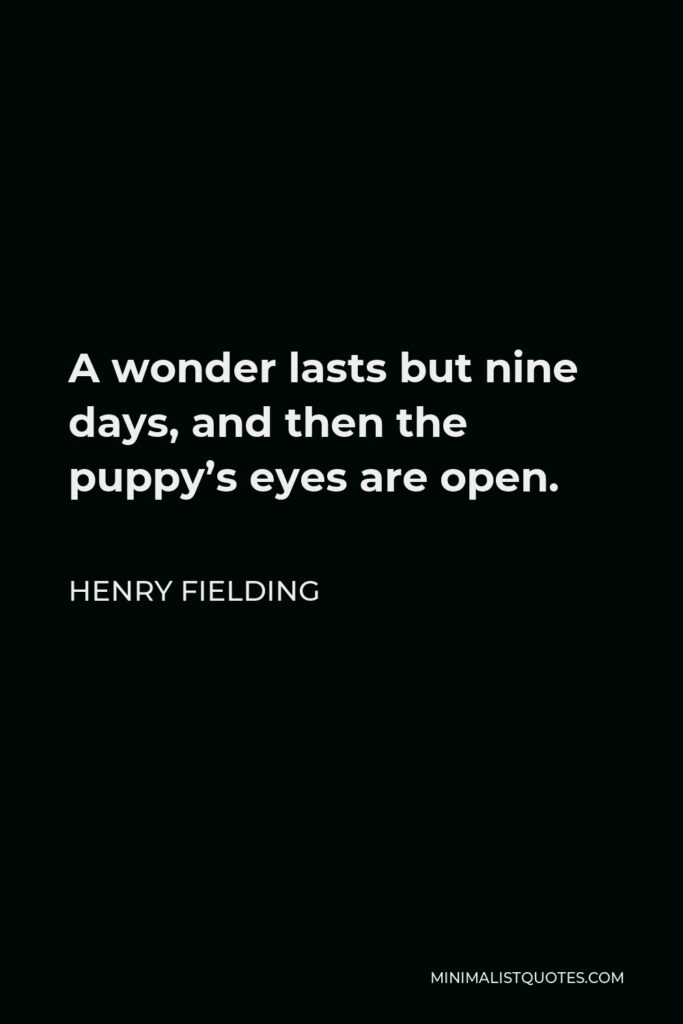

A wonder lasts but nine days, and then the puppy’s eyes are open.
HENRY FIELDING -





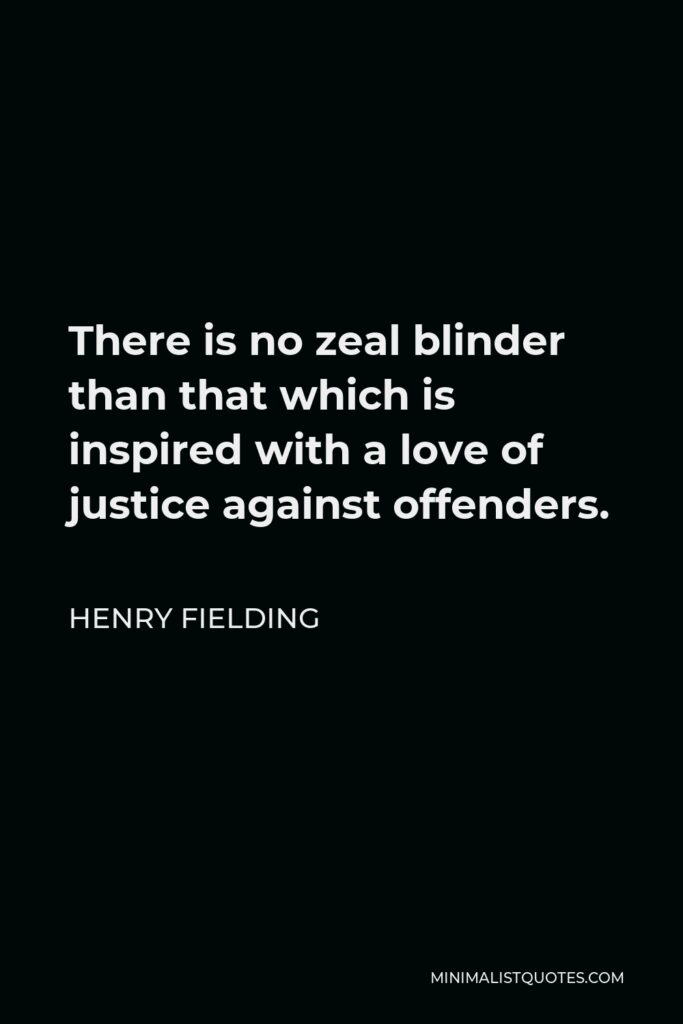

There is no zeal blinder than that which is inspired with a love of justice against offenders.
HENRY FIELDING -





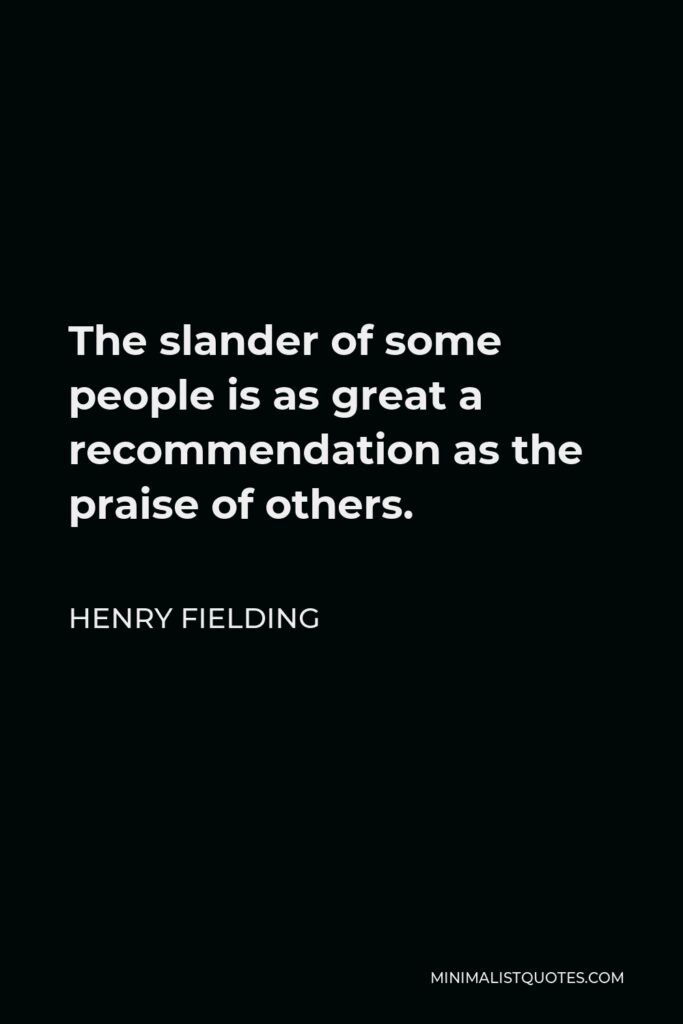

The slander of some people is as great a recommendation as the praise of others.
HENRY FIELDING -







Money is the fruit of evil, as often as the root of it.
HENRY FIELDING -





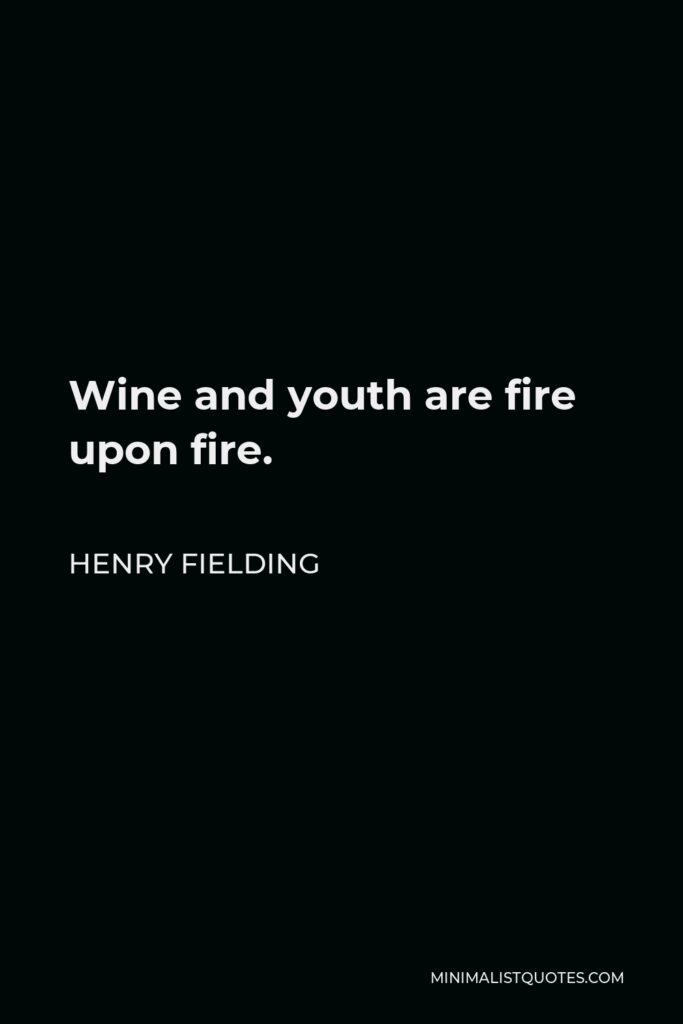

Wine and youth are fire upon fire.
HENRY FIELDING -







A good countenance is a letter of recommendation.
HENRY FIELDING -







Let no man be sorry he has done good, because others have done evil.
HENRY FIELDING -





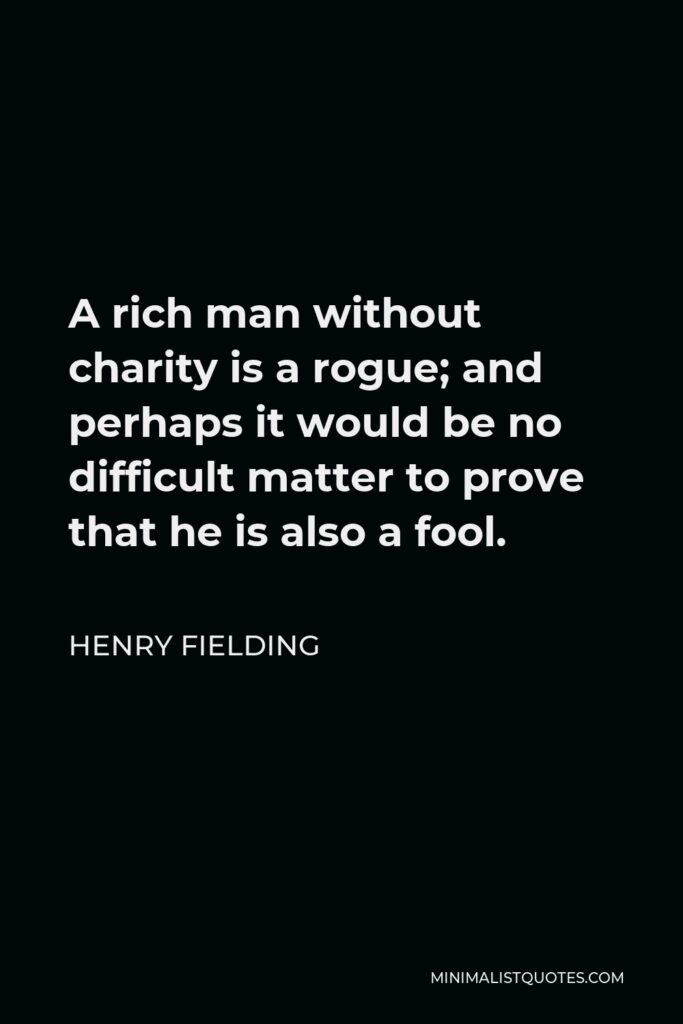

A rich man without charity is a rogue; and perhaps it would be no difficult matter to prove that he is also a fool.
HENRY FIELDING -





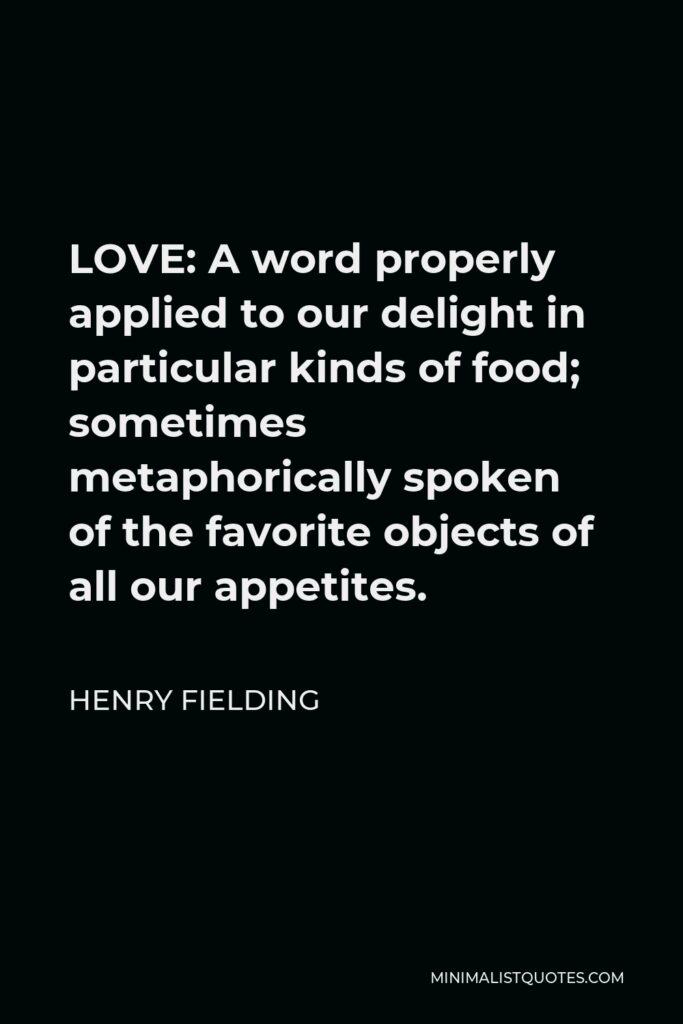

LOVE: A word properly applied to our delight in particular kinds of food; sometimes metaphorically spoken of the favorite objects of all our appetites.
HENRY FIELDING -





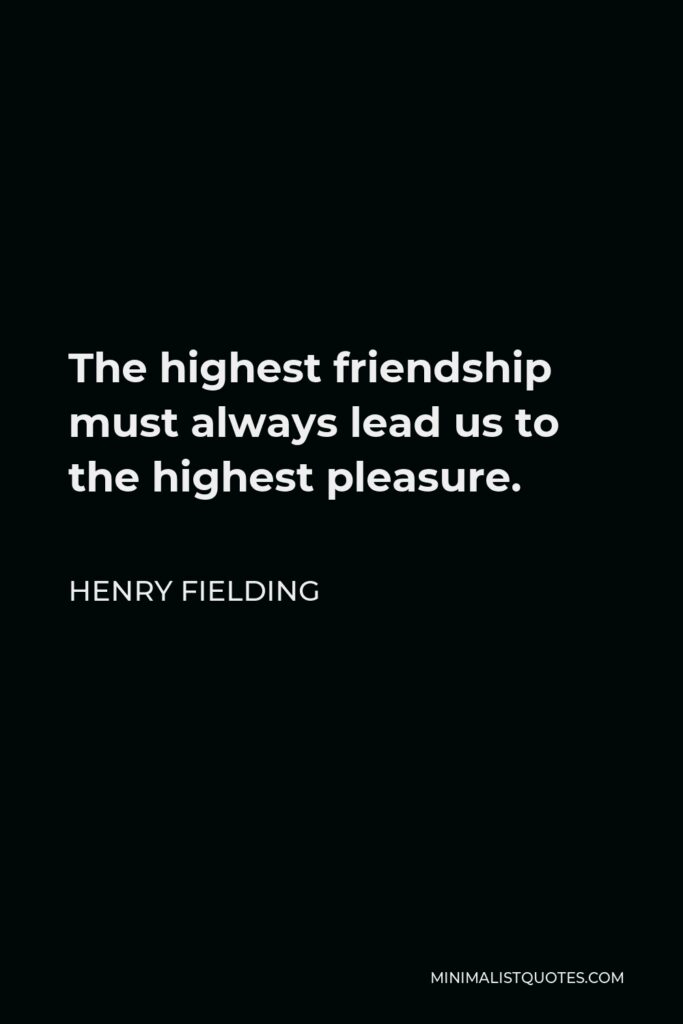

The highest friendship must always lead us to the highest pleasure.
HENRY FIELDING -





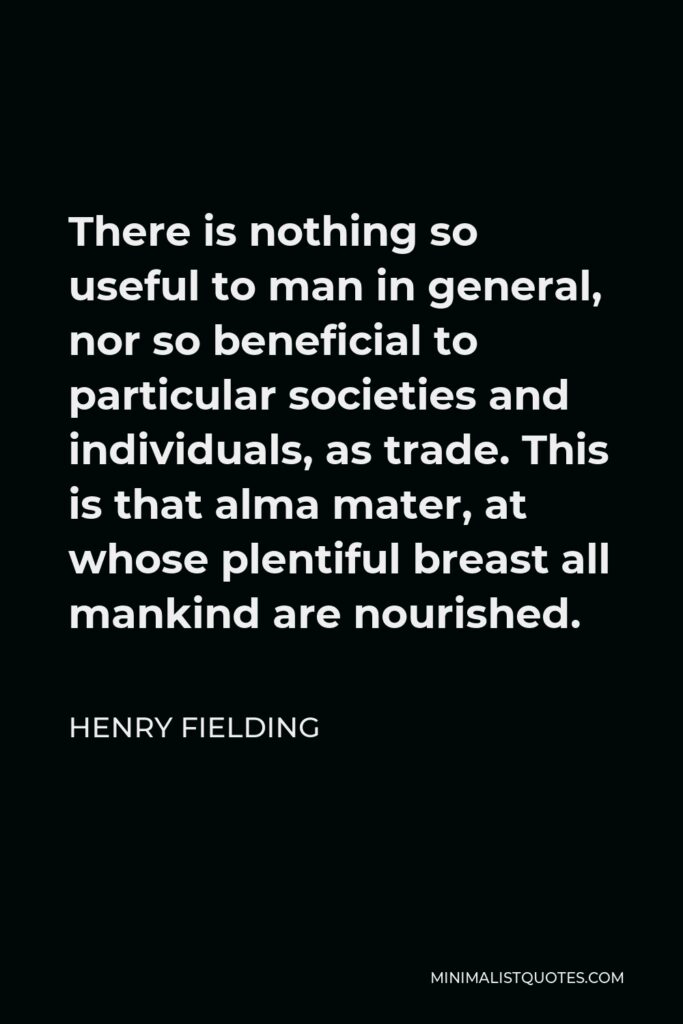

There is nothing so useful to man in general, nor so beneficial to particular societies and individuals, as trade. This is that alma mater, at whose plentiful breast all mankind are nourished.
HENRY FIELDING -





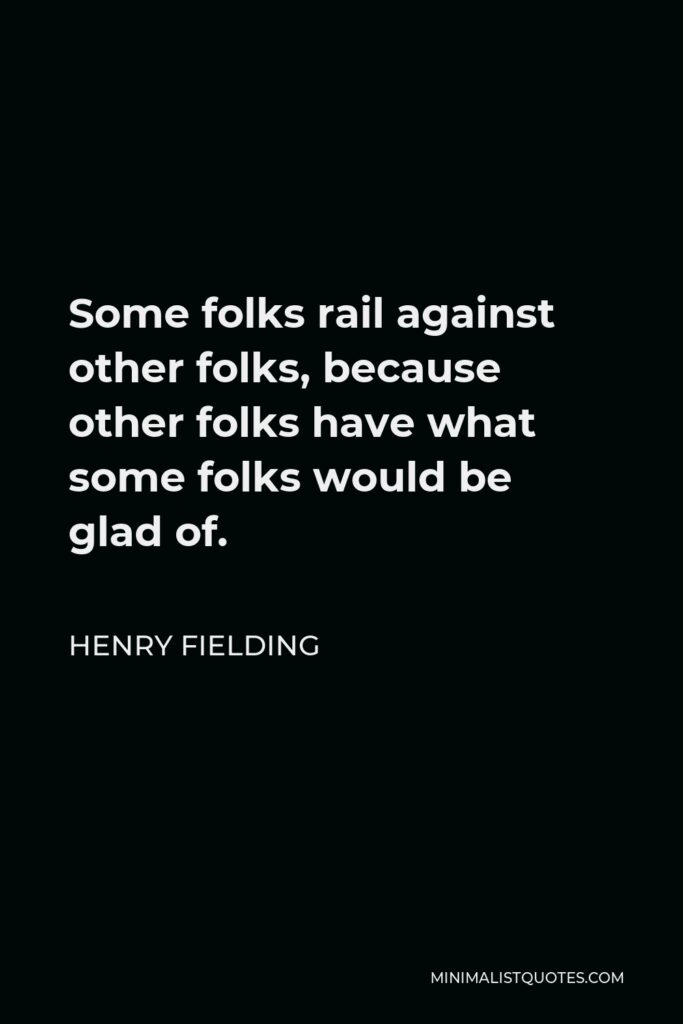

Some folks rail against other folks, because other folks have what some folks would be glad of.
HENRY FIELDING -





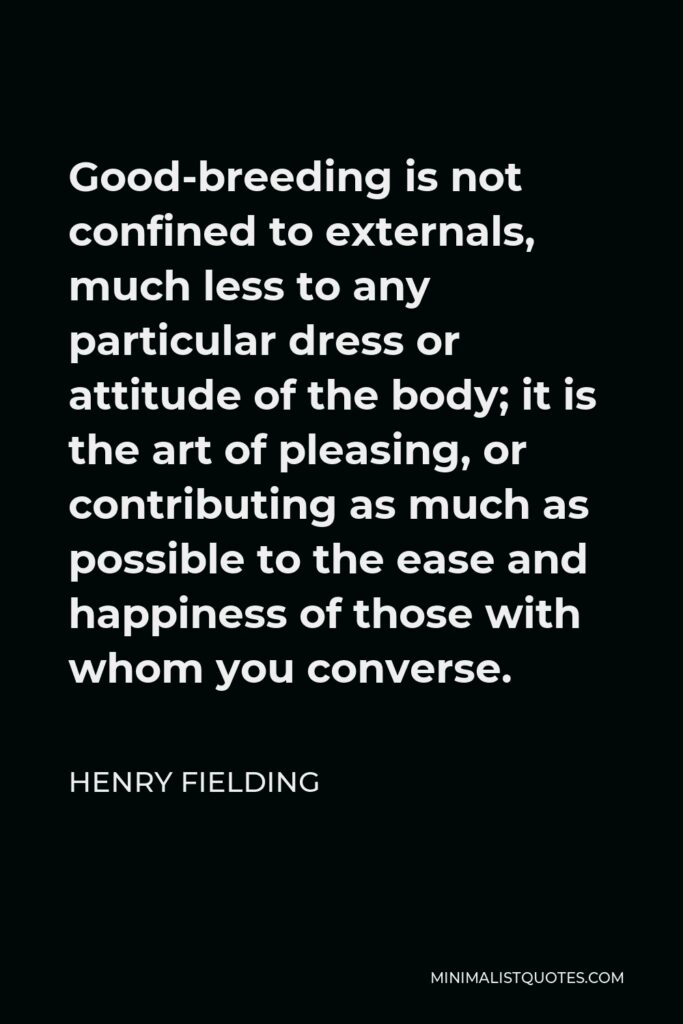

Good-breeding is not confined to externals, much less to any particular dress or attitude of the body; it is the art of pleasing, or contributing as much as possible to the ease and happiness of those with whom you converse.
HENRY FIELDING -







When I mention religion I mean the Christian religion; and not only the Christian religion, but the Protestant religion; and not only the Protestant religion, but the Church of England.
HENRY FIELDING







